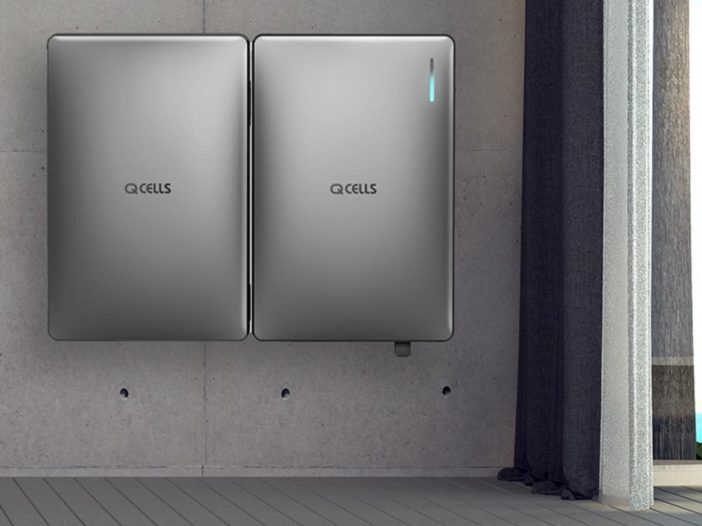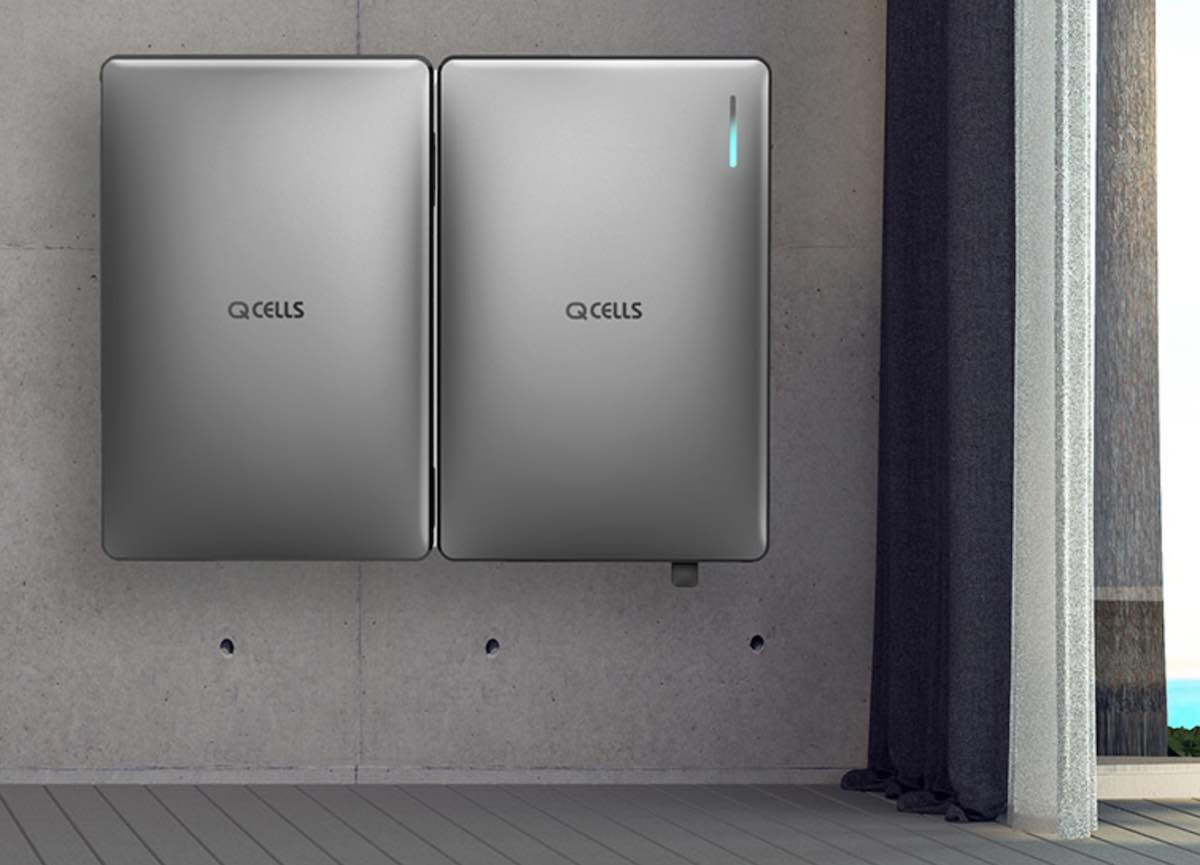
South Korea-based Hanwha Q Cells has tapped Australia for the international debut of its new home battery system, Q.Home Core, with the first batch to be rolled out as part of a virtual power plant pilot in Victoria that is being developed in concert with the state’s Solar Homes rebate scheme.
Q Cells said on Monday that the third generation Q.Home energy storage solution, which integrates a solar inverter with a modular battery system developed by Samsung SDI, would have its first international launch in Australia and Europe, where it would open to public sales in March 2022.
The system pairs the 5kW Q.Volt inverter, which offers hybrid or AC-coupled options, with a “safe and reliable” li-ion battery – manufactured by fellow South Korea giant Samsung – called Q.Save, which offers storage of 6.86kWh per unit or is scalable to up to three units for a maximum 20.5kWh capacity.
Wrapped in a neat metallic-silver casing and suitable for wall- or floor-mounting, Q Cells describes the Q.Home Core as providing “a significant upgrade” to its total residential solar solution, including a 15-year product warranty.
The inverter and battery system also offers Q Cells’ production and consumption monitoring via the Q.Ommand Home app, allowing users to track their energy generation and consumption and optimise their energy savings.
“This addition to the Q Cells total solar solution allows homeowners the peace of mind of an outstanding battery storage product backed by our Fortune 500 parent company Hanwha Solutions, and the aesthetics that Australians are looking for to showcase their commitment to renewable energy in their own home,” said Q Cells Australia managing director Jin Han.
“We’ve had a fantastic response from our QPartner solar retailer and installer partners who like the Q.Home Core for its modularity and ease of installation, but love it for its good looks,” he added.
“It makes it incredibly easy for solar buyers to be able to select a whole solar system from one brand, with one point of contact for support, and the long 15 year warranty to set their mind at ease.”
The new offering from Q Cells follows the 2019 version of Q.Home, marketed in Australia as a “fully wrapped” home solar and storage package on the Australian market that combined PV panels, a hybrid inverter, and lithium-ion battery storage of up to 12kWh.
Among various other improvements, the 2022 version ditches Q Cells’ signature bright blue and opts for the much more low-key metallic silver. The partnership with Samsung also appears to be new, or at least was not showcased in the previous Q.Home battery launch.
The inclusion of the new Q.Home battery systems in the Solar Victoria’s VPP is a coup for Q Cells, giving it an important leg-up in a market that has not been easy to crack for most home battery manufacturers.
Q Cells Australia said in its statement on Monday that it had been selected as one of just a handful of approved partners for the Victorian program, through which it would offer participants a fully-integrated solution, including PV panels, a 100% green VPP energy plan, and Q.Home Core.
Solar Victoria, which runs the home solar and battery rebate schemes for the state Labor government, announced the launch of its pilot program in December of last year, inviting applicants to join an approved VPP in exchange for a slightly bigger discount on their battery.
As the Solar Vic website explains, eligible applicants who agree to join an approved VPP can get access to a rebate of $4,174 towards the upfront cost of a solar battery, including installation.
Participation in the pilot VPP program then offers access to a range of benefits and program structures, including payments for sharing stored solar energy, in return for contributing to increased grid resilience.
You can read more about the Victoria VPP pilot scheme here. Other approved VPPs that participants can join include offerings from Reposit, Sonnen and Mondo, which each offer slightly different packages – see list and details here.

Sophie is editor of One Step Off The Grid and deputy editor of its sister site, Renew Economy. Sophie has been writing about clean energy for more than a decade.

